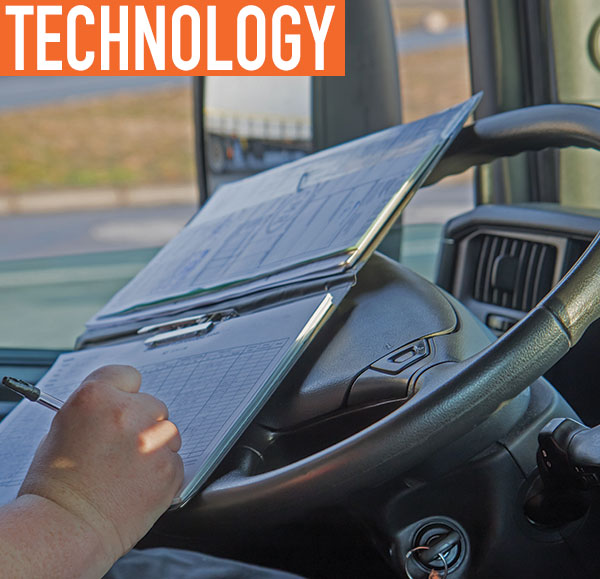There’s no doubt that the number one challenge most fleet manager’s face is the constant, never-ending struggle to reduce cost.
Fleet managers are having to get creative to find ways to cut costs, without having an impact on productivity and employee morale, while promoting efficiency and safety at the same time.
One solution many have found is outfitting their fleet with asset trackers and/or video event recorder systems, but more importantly, a Cloud software platform that keeps all the data organized and accessible.
Using a Cloud-based software, such as Digital Ally’s FleetVu Management Suite, eliminates the costly need for in-house servers and the IT personnel needed to maintain them, while also allowing for added flexibility and agility. Fleet managers are able to access and monitor vital information via their desktop computer, laptop, tablet, or even a smartphone, as long as they have an internet connection.
Storing all video and data in the Cloud allows fleet managers to quickly add and remove resources to keep pace with their fleets’ goals and objectives. They are also provided 24/7 visibility of their fleet assets to access and assess real-time vehicle data, such as mileage, speed, fuel consumption, idle time, and diagnostic trouble codes. This data allows for improvement of operations and the opportunity to reduce costs by identifying costly or dangerous driver behavior.
THINGS TO CONSIDER
The Cloud is a powerful tool for storing your video and data, but there are still some things to consider before utilizing it. Here are example questions to ask your potential provider:
- Where are the Cloud-host servers located?
The server location is important, as is making sure your data is hosted in multiple data centers or regions around the world. In case of local or regional outages, this will improve the uptime of your data, as well as help prevent data loss. For example, Digital Ally’s FleetVu Management Suite is hosted through Amazon Web Services on several servers located throughout the United States. - How secure are the servers?
Server security is clearly important to make sure your data is not accessible by unauthorized users. A key is to make sure your data is encrypted, either by utilizing the server-side encryption or encrypting your data on your own before you transfer to the Cloud. - Can the vendor’s Cloud grow with the business?
How scalable is the software? It’s important not to overbuy storage as the recent trend shows data centers decline in price about 24 percent every year. Most plans allow you to buy more storage each year to account for an increase in data volume, or some plans, such as FleetVu, offer unlimited storage. - What kind of backup/redundancy/disaster plan is in place?
What happens when the system goes down? Before you commit to a vendor, you should find out how quickly you will be able to recover your data in the event of loss or disruption, as well as what the process looks like to restore your data and support time if there are any problems. Some vendors will send you a hard drive with your data, but may also charge extra for the service. - Who has access to the data, and are there any restrictions to my access? How real-time is the access?
Your data should only be accessible by those within your company that have been given access by the fleet manager—and the company providing the software solution—in the event of any issues. You should, however, have an agreement with the provider that states the circumstances in which they are allowed to access your data. Access should always be real-time, as long as you have an internet connection.

FEATURED IMAGE: 24/7 visibility of asset data allows for improvement of operations and the opportunity to reduce costs by identifying costly or dangerous driver behavior.
ABOVE: Using a Cloud-based software eliminates the need for in-house servers and the IT personnel needed to maintain them.
COMPLETE YOUR SOLUTION
Many fleet managers focus mainly on the software that will be storing their data, but it’s also important not to overlook the hardware that will capture the data. The purpose of event recorders and asset trackers is to manage driver behavior, increase driver safety, and reduce risk. While asset trackers, which track and monitor vehicles and driving behavior in real-time, might be enough to accomplish these goals, several fleet managers are turning to video event recorders.
Video event recorders, for example Digital Ally’s DVM-250 Series, are able to increase driver safety, track assets, and minimize the company’s liability risk by tracking driver behaviors, including direction changes, traveled path, speed, acceleration, braking, g-force incidents, etc., with video to accompany it. Studies have shown a reduction of motor vehicle violations and accidents by 75 percent and a significant reduction of “at-risk” behaviors when video is present. While data can be very helpful after incidents, it is not always enough by itself, but paired with video, fleet managers can see the whole story.
No matter the size of your fleet, Cloud software can be scaled to fit the needs of any fleet manager. From vehicle inspections to driver management to telematics and incident video review, Cloud-based software paired with an asset tracker or video event recorder provides a solution every fleet manager needs and deserves.
ABOUT THE AUTHOR
Find out more about the Cloud software platform and video event recorder mentioned in this article, visit www.digitalallyinc.com.
_______________________________________________________________________
MODERN WORKTRUCK SOLUTIONS: April 2017 ISSUE
Did you enjoy this article?
Subscribe to the FREE Digital Edition of Modern WorkTruck Solutions magazine.
![]()




